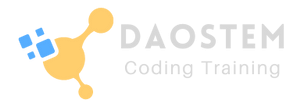In today’s rapidly evolving technological landscape, the question of whether programming is a must-have skill for the future is gaining increasing importance. As we become more reliant on digital solutions, automation, and artificial intelligence, the ability to understand and work with programming languages is becoming a valuable asset. This article explores the significance of programming skills in the context of the future job market, education, and personal development.
The Pervasiveness of Technology:
Technology is deeply integrated into nearly every aspect of our lives, from smartphones and smart home devices to self-driving cars and advanced medical equipment. Programming forms the backbone of these innovations. Understanding how code functions allows us to harness the power of technology to solve problems, streamline processes, and enhance our quality of life. As technology continues to advance, the demand for individuals who can create and manipulate software is expected to rise.
Programming in the Job Market:
The job market is experiencing a seismic shift towards tech-related positions. Fields that were traditionally non-technical are now seeking employees with programming skills. From marketing and finance to healthcare and agriculture, programming is transforming industries and creating new job roles. Proficiency in programming languages not only opens doors to specialized roles but also enhances a candidate’s competitiveness in the job market. Even for roles that do not explicitly require programming, possessing coding knowledge can be a significant advantage.
Automation and Creativity:
While automation is replacing certain repetitive tasks, it is also creating new opportunities for those who can design, develop, and maintain automated systems. Learning programming equips individuals with the ability to design intelligent algorithms and automate processes, freeing up time for more creative and strategic tasks. Programming empowers individuals to create tools that can handle mundane tasks, allowing humans to focus on innovation, problem-solving, and critical thinking.
Education and Skill Development:
Programming isn’t just about preparing for a career in software development. It cultivates essential skills such as logical thinking, problem-solving, and attention to detail. These skills transcend programming and are invaluable in any field. Learning to code encourages a growth mindset, where individuals are willing to learn and adapt to new technologies. Additionally, programming promotes computational thinking, which is increasingly important in understanding complex systems and making data-driven decisions.
Personal Empowerment and Innovation:
Programming enables individuals to turn their ideas into reality. The ability to build prototypes and test concepts empowers entrepreneurs, hobbyists, and creators. It’s not just about building software applications; programming can also be used to create interactive art, smart gadgets, and even solve local community issues. With the right programming skills, anyone can contribute to innovation and make a positive impact on society.
Conclusion:
While it’s not necessary for everyone to become a professional programmer, having a basic understanding of programming concepts can undoubtedly be a valuable skill in the future. As technology continues to shape our world, programming empowers individuals to navigate and thrive in this digital age. Whether it’s for career advancement, personal growth, or contributing to innovative solutions, programming is a skill that holds immense potential for shaping the future.



